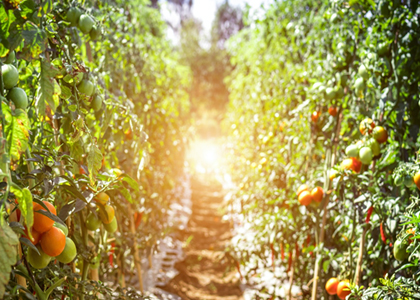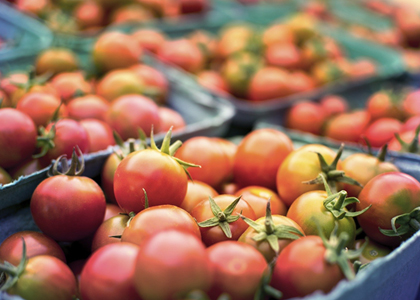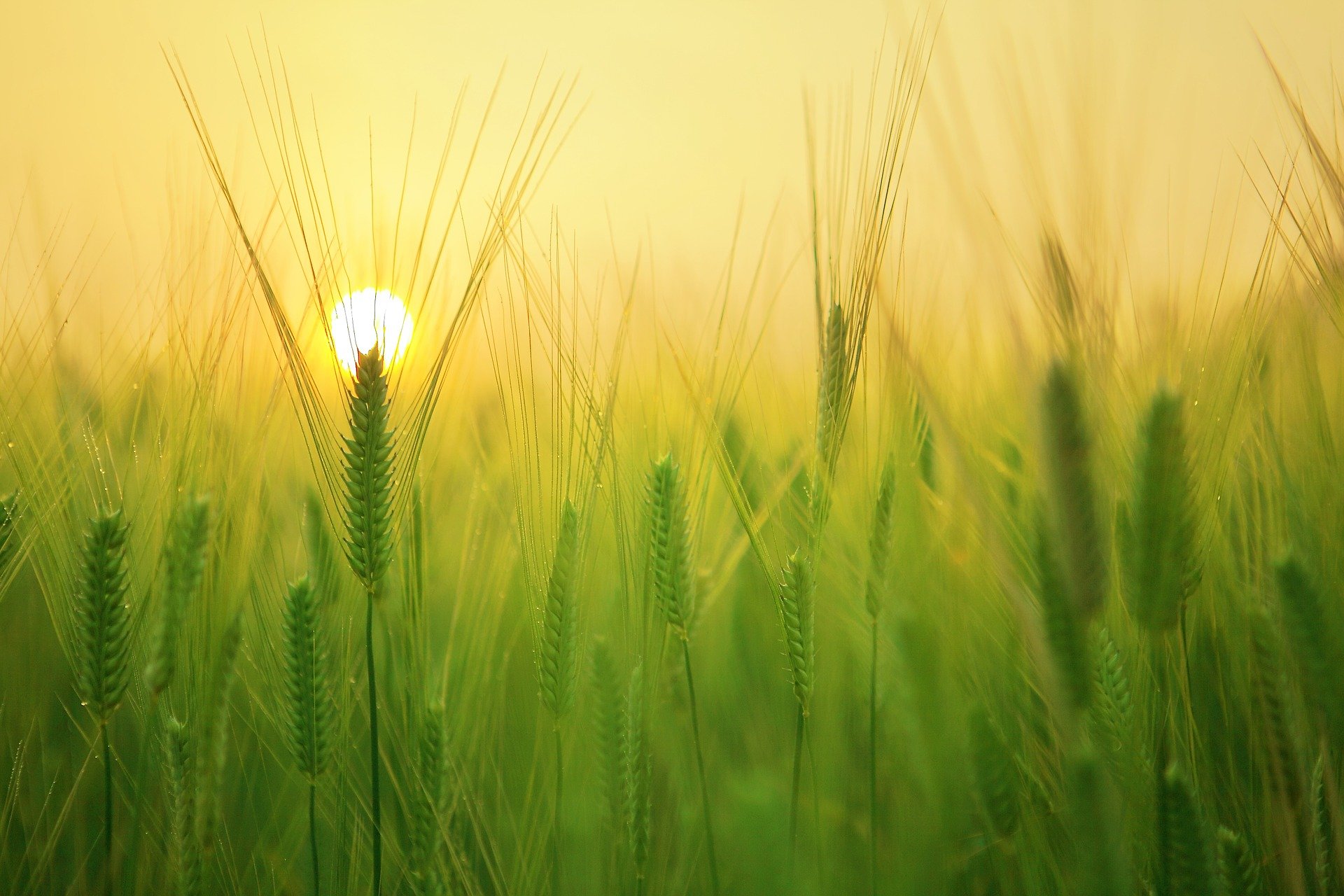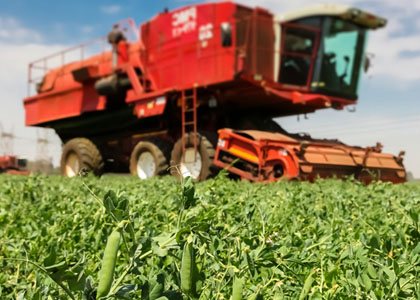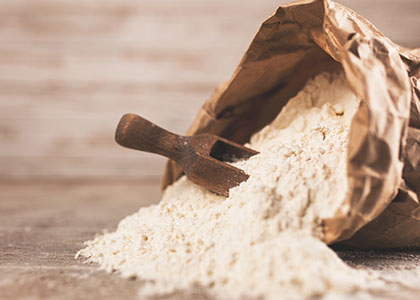Home / Blog / What impact has the covid-19 pandemic had on the saudi agriculture industry?
SUMMARY
Saudi Arabia has long been concerned about food security and water management. The country has actively been working towards domestic self-sufficiency across agricultural segments through heavy investments in the sector. These include credit to farmers and agri-businesses, financial exemptions, packaging, and distribution support, as well as self-sufficiency by proxy through investments in farmland abroad.
However, after the disruptions caused to global supply chains by the COVID-19 pandemic, the Kingdom is shifting focus towards more local investments that work to strengthen agricultural value chain management through digitalization and modernization of processes. In truth, while the pandemic has been a real challenge, it has prompted a rethinking of agricultural strategies that could potentially shape a brighter future for Saudi Arabia’s farmers.
This article highlights areas of development within Saudi agriculture in the coming years, so that you are better equipped to plan for the future.
INDEX
- Addressing food security concerns
- Building strategic food reserves
- Increased support from the government
- Drive towards modernization
- Planning for the future
WHAT IMPACT HAS THE COVID-19 PANDEMIC HAD ON THE SAUDI AGRICULTURE INDUSTRY?
Despite being among the more food-secure territories of the world on account of availability, affordability, quality, and safety of food supplies, the GCC lacks control over its food sources and remains highly import-dependent. The year’s disruptions to global supply chains have prompted the region to reevaluate internal agriculture strengths and weaknesses to ensure against any vulnerability to food shortages.
The Kingdom particularly, is implementing sustainable interventions that aim at restructuring food supply chains, as well as safeguarding food imports against potential future shocks. It comes as no surprise then, that the country has been preparing to protect itself from international disruptions for a while now. It is well insured as it has the largest storage capacity for wheat and flour in the Middle East at more than 3.3 million tons. But even with this security, the government is working to do more.
Being aware of measures in various stages of development and implementation can be beneficial to you and your business. Here’s what you need to know:
-
Addressing food security concerns

Saudi Arabia’s self-sufficiency aspirations are applaudable. Agricultural subsidies have made the country the world’s sixth largest exporter of wheat in the 1990s. However, concerns for water resources prompted Saudi to shift domestic agricultural aspirations towards smarter, more water-efficient ways of growing foods—particularly fruits and vegetables.
The country is also addressing concerns about food security through the following strategies:
-
- Encourage more local food production: The Saudi government is committed to increasing local food supply, but the agricultural sector’s development depends on a number of factors, including capital stock, the labor force, available technologies, and climate conditions, among others. The Saudi government, therefore, has introduced long-term interest-free loans and easy credit schemes that are helping farmers design responsible farming plans and improve cereal, fruit and vegetable production. They are also helping raise the living standards for workforces on farms, as well as establishing duty-free imports for agriculture-related raw materials and machinery to improve the sector’s productivity. The government is also providing incentives for the prices of electricity, fuel, and water in the sector to encourage more productivity and growth.
- Reinforce supply chains: Simultaneously, the government is working towards increasing reinforcements to regional supply chains to mitigate any future disruptions. Plans are underway to help producers and consumers transition to online platforms and e-markets. For farmers who want to move up this accessibility curve, a good idea is to aggregate information and increase its visibility among all participants. They can implement digital tools that can help manage supply-chain risks, identify weak points in the value chain, and minimize food waste. Although this may require less labor, the transition to online platforms will boost productivity rates and build resilience against future shocks.
- Ensure stability of imports:

The government is also working to ensure the stability of imports by introducing new channels to bring critical resources into the agricultural value chain. In addition to streamlining border-control procedures to get goods into the region faster, authorities are working to minimize border and customs checks for agricultural freight, as well as working towards adopting e-certificates for imported food, rather than requiring physical documentation. These measures will help farming enterprises like yours get goods across faster than before. In fact, in 2020 alone, the Saudi Agricultural Development Fund has approved loans worth more than SR333 million ($87.8 million) to finance 12 projects in a number of regions across the agricultural sector in the Kingdom. The scheme came within a package of urgent financial initiatives and measures that worked to support the private sector and help reduce the impact of the coronavirus pandemic on farmers. It is a good idea, therefore, to get in touch with an agricultural expert/consultant who can best advise if you are applicable to make use of it.
- Building strategic food reserves

At the start of the COVID-19 pandemic, Saudi Arabia imported around 85% of its food. However, despite international disruptions, the immediate interventions taken by the Saudi government have ensured food availability throughout the course of the pandemic and the year 2020.
Investments are also being made that work towards building local food supplies and reserves that can last upwards of six months. This includes reserves for cereals, basic foodstuff, fruits, vegetables, meat, dairy products, and fish. The country has already achieved self-sufficiency in dates (125%), vegetables and poultry (60%), eggs (116%), fresh milk and its derivatives (109%) and fish (55%). Not only are some products enough for domestic consumption, but they also qualify for export. Here’s what you need to know:
- Infrastructural developments: Saudi is working towards building stocks, especially for wheat that can last for up to 12 months, by investing heavily in infrastructure. According to reports issued by the Kingdom’s Ministry of Commerce, the country currently has the biggest food reserve stock in the Middle East region. What’s more, the Saudi Ports Authority (Mawani) and the Saudi Agricultural and Livestock Investment Co. (SALIC) has recently signed an agreement to build a 313,000-square-meter grain terminal in Yanbu Commercial Port capable with a handling capacity of five million tons of produce a year. The idea behind the project is to link the Kingdom to global grain sources, especially in areas where SALIC holds investments. The project has the capacity to help support farmers like yourself by linking you to global grain sources, as well as giving you proximity to local and regional markets in the Red Sea Basin and the Horn of Africa.
-
Increased support from the government
In 2019, the government increased agriculture-related lending volumes to Saudi to the tune of SR1.9 billion ($506.67 million). This foresight has helped the agriculture sector not only prosper but also tide over smoothly the disruptions that may have been caused as a result of the 2020 global COVID-19 pandemic. Today, the Kingdom has one of the largest storing capacities in the Middle East for wheat and flour. The country also has trustworthy food supply chains capable of daily production that can satisfy consumers at international standards.

Additional endeavors working to increase capacities include the following:
- Credit facilities: While the Kingdom has long eased credit facilities to farmers, just last year, Saudi Arabia’s Agricultural Development Fund (ADF) approved loans and credit facilities worth over SR820 billion ($221 million) to strengthen the agriculture sector in the country. This included initiatives that backed up the standing capitals and operational costs of small and medium-sized establishments like yours. The fund’s board has also approved direct and indirect financing of agriculture enterprises, in partnership with commercial banks, to help organizations like yours import the required agricultural products you need with more ease and flexibility. Additionally, the plan also includes financing towards vegetable cultivation, poultry farming, and date factories, as well as importing rice, yellow corn and soybeans for livestock feeding and cultivation.
- Technical and advisory support:

In addition to financing support, other initiatives include financing for the first veterinary camel hospital in Saudi Arabia, shelter projects, broiler chicken production, a dried egg powder factory, and the provision of guarantees and financial facilities for feed and animal production companies. The fund will also offer technical, administrative, financial, and marketing consultancies to guide farmers through key processes. - Encouraging foreign investment: Driving these initiatives are public-private partnerships with foreign countries that offer good agricultural potential and access to resources. SALIC is an important example in the region. SALIC, which is affiliated to Saudi Public Investment Fund, owns 29.91% of Daawat Foods Limited Company, affiliated to India Agribusiness Fund, which is a leading producer of Basmati rice. These activities comply with SALIC’s strategy of investing in rice production with the aim of strengthening the rice supply chain.
-
Drive towards modernization
The Saudi government is working towards increasing domestic food production by embracing and encouraging new technologies in the agriculture sector.
The following are some of the efforts driving modernization in agriculture:
- Supercharge domestic farming: Experts believe that supercharging the region’s domestic farming capabilities amid the pandemic and beyond is the only way forward. Additionally, as improving the productivity and sustainability of agriculture, horticulture, and aqua culture is a keen point under the Vision 2030 agenda, investments across multiple agricultural sectors are already underway. The government is keen to extend world-class knowledge, progressive food and farming supply chain learnings, as well as ease market access and trade barriers to farmers so that they can boost domestic productivity.
- Investing in farming techniques and support: Heavy investments in alternative farming techniques is leading the way in the Kingdom. What’s more, many supermarkets are being encouraged to go into partnerships with controlled-farming organizations to secure supply chains. These methods prioritize food storage solutions, food waste management, recycling, packaging, agri-scaling, and water conservation as the driving methodologies behind agricultural production.
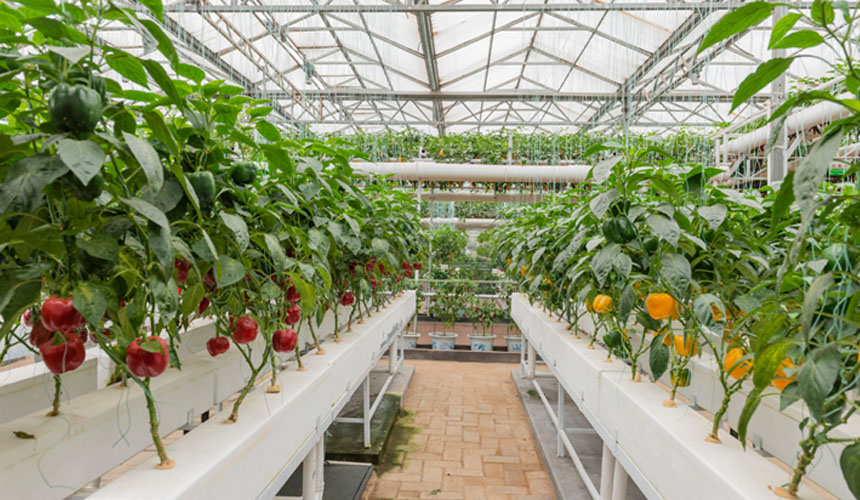
Similarly, last year the Kingdom invested $9 million in British agri-tech firm Hummingbird Technologies, which uses drones and AI to produce high-resolution maps that can help farmers forecast crop stress, predict yields, and get more ‘eyes’ on ground for better planning across the farm. Products like drones and AI, as well as support on how to work them, are being made more readily available to farmers should you wish to incorporate them into your enterprise.
- Urban and controlled-environment farming:
With the increasing incorporation of technology in agriculture, the hope is that more territories with marginal environments like those in the Kingdom will one day be able to produce high food yields with minimal resources. The fact is that introducing insect-resistant crops and gene technology in controlled environments, is the best way to boost domestic agriculture. The sooner enterprises make a move towards more modern ways of farming, the sooner the country will reduce dependence on providers abroad. One of the best ways to do this is through hydroponic and vertical farming:
Hydroponic and vertical farming: The UAE agriculture sector particularly has been taking a high-tech direction over the past decade. The country is leading in growing food without soil, using instead nutrient-infused water. This method of growing food hydroponically is also gaining ground in the Kingdom, where growing crops indoors effectively tackles one of the main challenges facing the country’s farmers: the climate. With global warming expected to lead to less rainfall, fiercer droughts, higher sea levels and more storms in the country over the next 70 years, heat, humidity and dust will be major challenges to farming, where yields and quality cannot be controlled or predicted.
For similar reasons, vertical farming in which crops are grown stacked under LED lighting and watered with mists or drip systems is also gaining popularity in the country. Following on the example of Pure Harvest Smart Farms based out of the UAE, Saudi private companies are already experimenting with growing tomatoes, leafy greens and microgreens in technology-enabled greenhouses. These spaces allow for not only more organic ways of food production with 99% less water, but they are also capable of providing year-round yields in far smaller areas. Additionally, controlled-environment farming also allows growth potential for other kinds of fruits and vegetables. There is also talk of introducing climate-resilient crops such as quinoa, pearl millet and sorghum to farmers. You may consider getting in on the action!
For countries with extreme weather conditions, the move to tech-enabled agriculture is inevitable if you plan to deal with challenges like climate change and future disruptions, like those caused by the novel coronavirus.
-
-
Planning for the future
-

The food systems of the Arab Gulf countries, and particularly Saudi, have performed well during the COVID-19 crisis in terms of ensuring food availability. Our modern value chains are more resilient than the traditional and transitional ones that dominate developing countries. However, further improvement of such value chains deserves the attention of policymakers and researchers alike.
Hydroponics, aquaponics, vertical farming and other modern production technologies are the way of the future. They allow the Kingdom to meet some of its requirements regarding fruit, vegetables and fish without depleting groundwater resources at unsustainable rates, but more still needs to be done. A majority of food supplies will still continue to come from global markets. The country needs to work on multilateral frameworks such as the WTO and G20 to help in making international food trade more dependable.
For information on how to plan for the future, as well as get specialized advice and consulting services that help you and your business stay immune to disruptions, get in touch with us or email hello@agri.com.sa.



